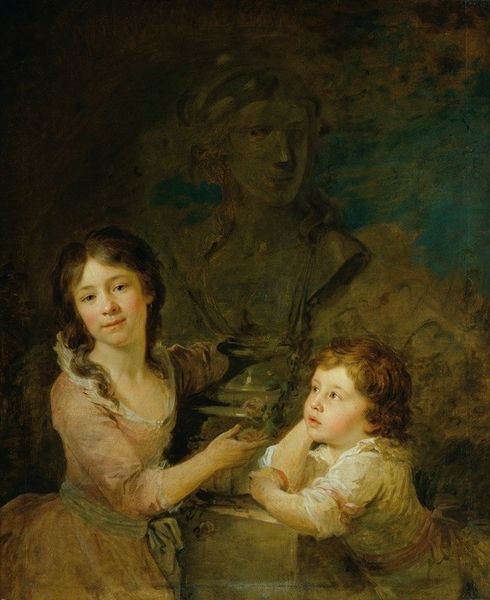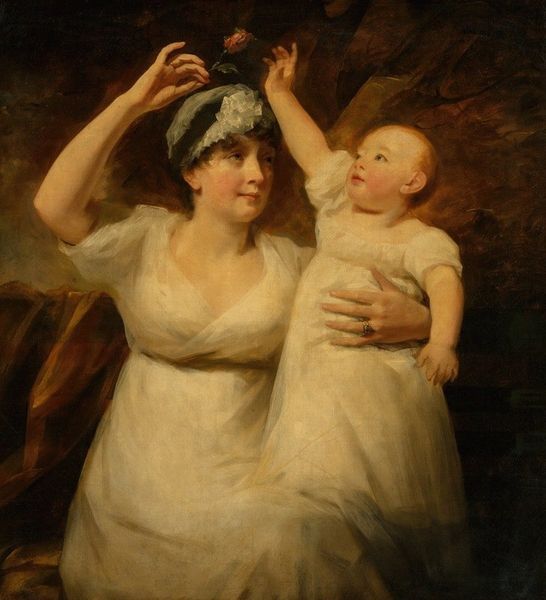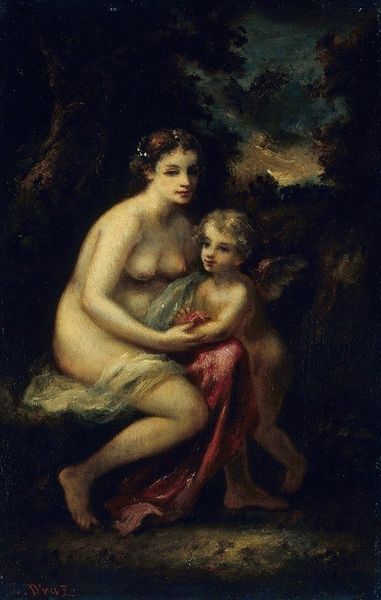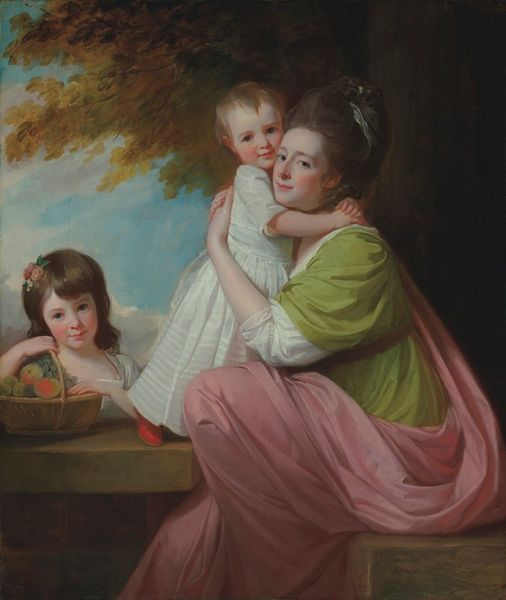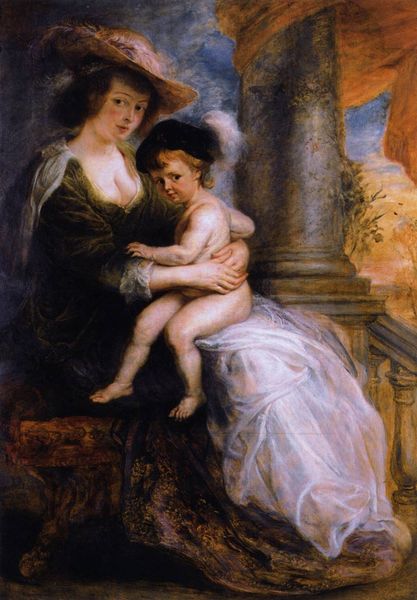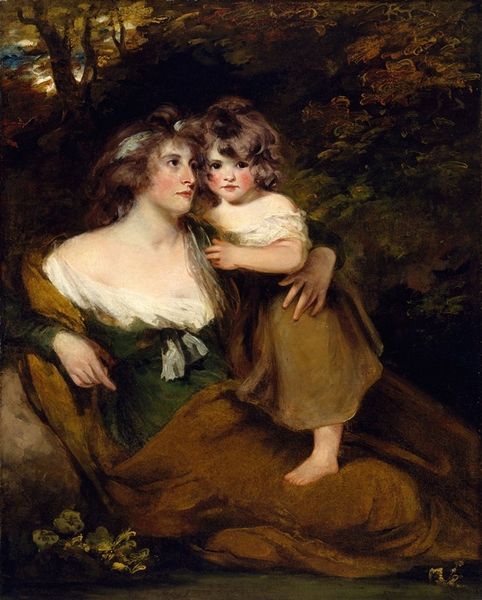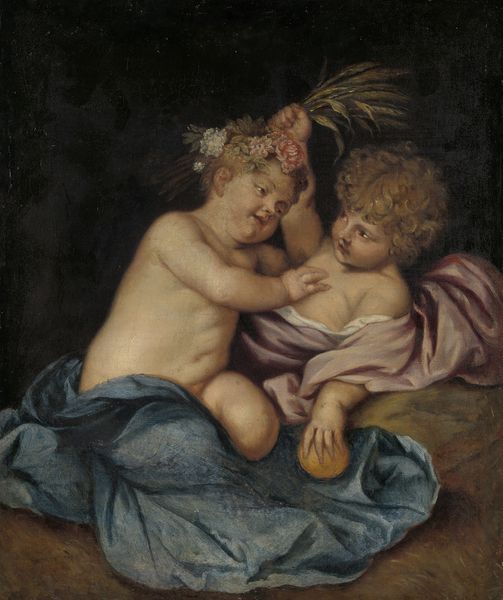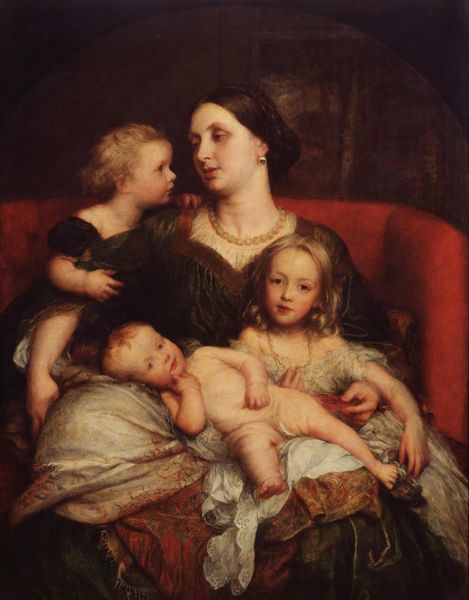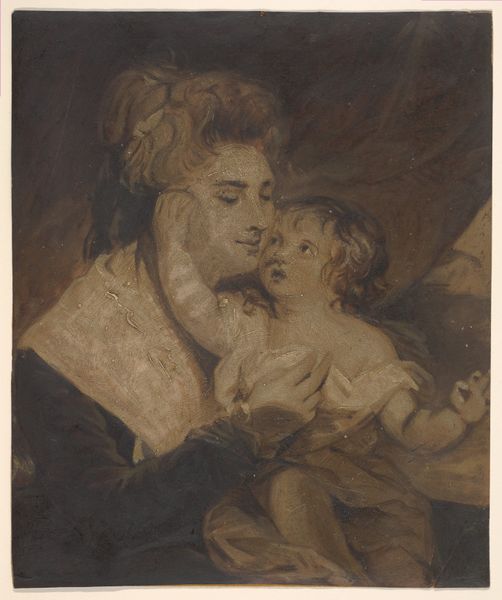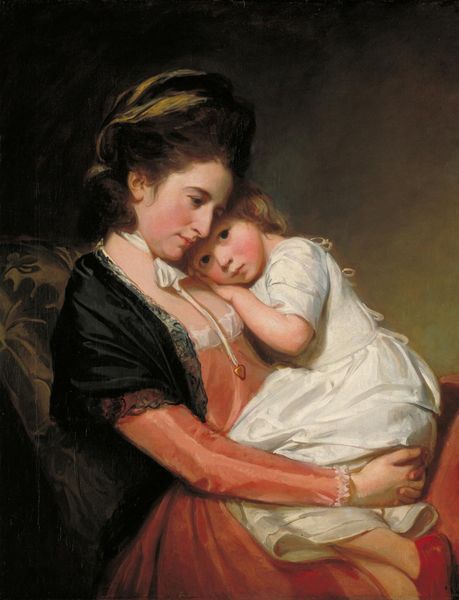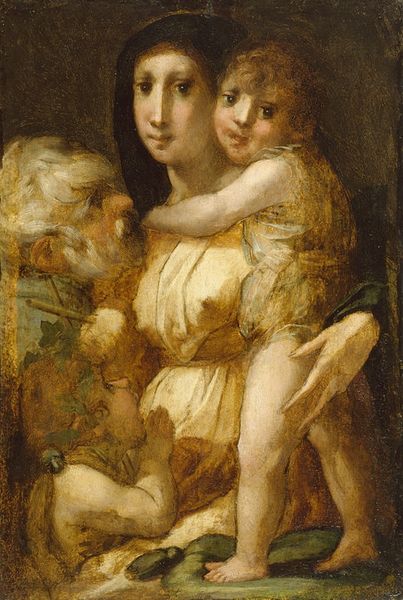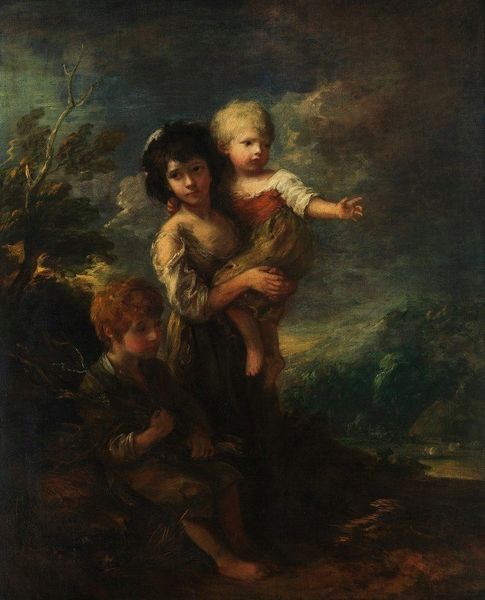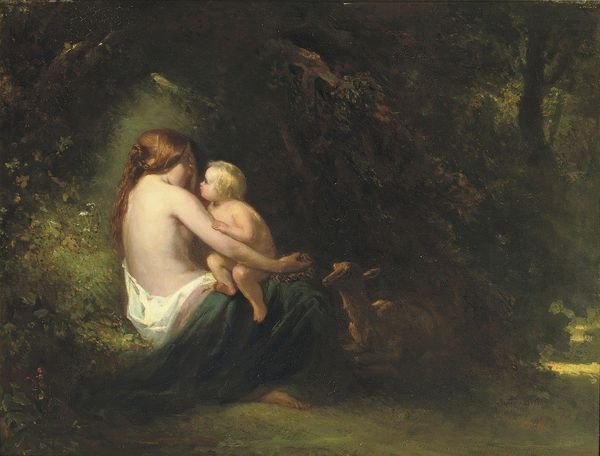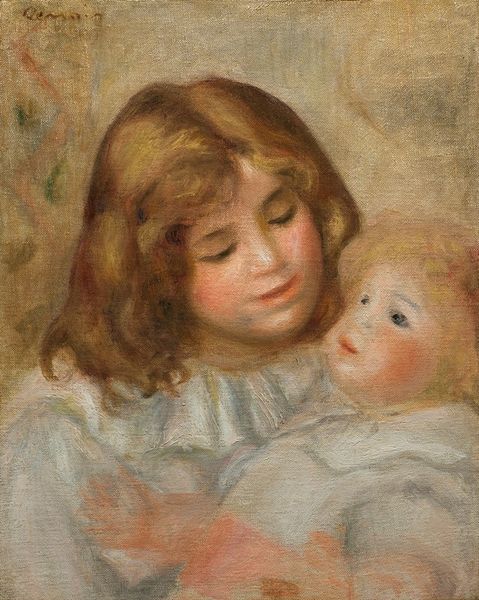
Dimensions: support: 889 x 686 mm frame: 1093 x 893 x 92 mm
Copyright: CC-BY-NC-ND 4.0 DEED, Photo: Tate
Editor: This is Sir Joshua Reynolds's "Mrs Hartley as a Nymph with a Young Bacchus," currently at Tate Britain. It feels quite staged to me, even a bit cliché. What symbols are at play here? Curator: The figures are depicted as mythical characters, drawing on classical iconography to elevate the sitter's status. Notice the grapes and vine leaves adorning the child, Bacchus, symbols of fertility and wine. Editor: So, Reynolds is linking Mrs. Hartley to classical ideals of beauty and motherhood? Curator: Precisely. He's tapping into a visual language understood by his audience, associating her with timeless virtues and graces. It's a cultural shorthand, connecting her to a rich history of artistic representation. Editor: I see, the symbols provide a visual link to established cultural ideas. Curator: Indeed. The enduring power of symbols!
Comments
tatebritain 10 months ago
⋮
http://www.tate.org.uk/art/artworks/reynolds-mrs-hartley-as-a-nymph-with-a-young-bacchus-n01924
Join the conversation
Join millions of artists and users on Artera today and experience the ultimate creative platform.
tatebritain 10 months ago
⋮
Elizabeth Hartley (1751-1824) is depicted here as a mythological figure. She holds a young Bacchus, the ancient Greco-Roman god of wine and festivity. By the time this painting was exhibited at the Royal Academy in 1773, Hartley was one of the most celebrated actresses on the London stage. Reynolds exhibited this painting with the title ‘A Nymph with Young Bacchus’. It was not presented as a portrait of Mrs Hartley, but as a subject or ‘fancy’ picture. Such pictures incorporated imagined elements into a scene, particularly of women and children. Gallery label, October 2023
